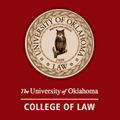Free Consultation: (888) 215-0114Tap to Call This Lawyer

Travis Kendall Siegel
Valentine Law Group
Badges
Claimed Lawyer ProfileQ&AResponsive Law
Biography
Travis Siegel has been practicing law for over 17 years, concentrating on the prosecution of elderly abuse cases. As a young man, Travis experienced a family tragedy involving medical malpractice. He understands firsthand the heartbreak and pain that families go through after an accident. This experience played a large part in Travis’ decision to become a personal injury attorney. He is passionate about representing families harmed by negligence and finds great personal reward when he wins compensation and justice on their behalf. Travis is admitted to practice law in California and Oklahoma.
Practice Area
- Nursing Home Abuse
Additional Practice Area
- Elder Abuse and Neglect
Fees
- Free Consultation
Jurisdictions Admitted to Practice
- California
-

Languages
- English: Spoken, Written
Professional Experience
- Attorney
- Valentine Law Group
- - Current
- Managing Partner
- Siegel Law
- -
- Associate Attorney
- Lanzone Morgan, LLP
- -
- Associate Attorney
- Bisnar|Chase
- -
Education
- University of Oklahoma College of Law
- J.D.
-

- Oklahoma City University
- B.S. | Criminology
-

Awards
- Member
- Million Dollar Advocates Forum
- Member
- Million Dollar Advocates Forum
- Pro Bono Attorney of the Year
- Oklahoma Bar Association
Professional Associations
- Oklahoma State Bar
- Member
- Current
-

- State Bar of California # 282482
- Member
- Current
-

Legal Answers
4 Questions Answered
- Q. What is the difference between a contingency case and a pro bono case
- A: A contingency case is contingent on the outcome. If you're successful at trial or the case settles for an amount of money, the attorney takes a certain percentage of the award. If you lose at trial or the case is dismissed and you have no monetary recovery, the attorney takes zero. Some lawyers write their attorney-client retainer agreements in such a way that they can recover their costs in certain situations even if you lose, but this isn't the norm. So yes, a contingency case can be considered pro bono up until you "win" because the attorney is spending his or her own money and time without asking you to pay him or her back.
A pro bono case is pursued for free even if ... Read More
- Q. Does the whole family need to be a part of a nursing home lawsuit, or can one member file if they want?
- A: It depends. If the case involves a death, all heirs who can inherit by statute must be included. They can be included as nominal defendants, but they still must be named. They don't have to agree with the lawsuit. Obviously, it's better if everyone is on the same page, but sometimes this doesn't happen. If the victim is still alive, one person can file as Power of Attorney, Guardian ad Litem, or Conservator for the abuse victim. Not all family members need to be named if the victim of abuse is still alive.
- Q. What are nursing homes required to have in place to prevent falls?
- A: Whatever the resident needs to prevent them from falling because there is no one size fits all solution to falls. State and federal regulations require the nursing home to provide the care and assistance needed by the resident to meet their needs. Sometimes bed alarms work. Sometimes they don't. Sometimes more assistance and supervision works. Sometimes it doesn't. Sometimes redirection and resident education work. Sometimes they don't. They way to prevent falls is to address the resident's specific needs and limitations, then implement the necessary care. One solution may work for one resident but not another. And there is no possible way to prevent all falls.
Social Media
Contact & Map